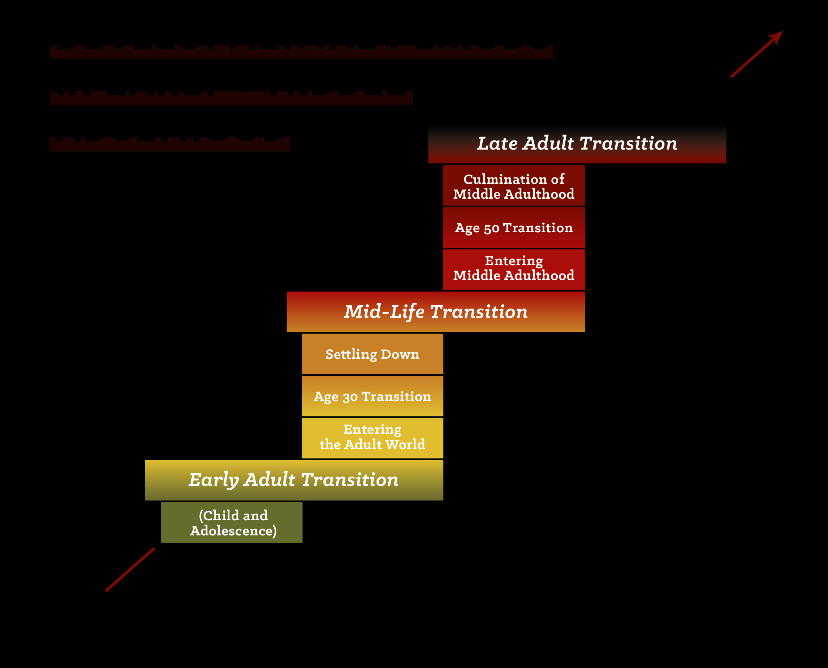
Some say "life begins at forty," while others caution, "a fool at forty is a fool for life." Whichever side of the divide you find yourself on, it's important to note that midlife is a pivotal phase in human development, often marked by significant biological and cultural transformations.
Understanding Midlife: A Comprehensive Overview
Midlife, typically encompassing ages 40 to 65, serves as a bridge between the vigor of youth and the wisdom of old age. This period is characterized by a unique interplay of biological changes, psychological developments, and sociocultural influences.
Biological Transformations in Midlife
During midlife, individuals undergo various physiological changes that can impact their health and well-being:
- Hormonal Adjustments:
- Menopause in Women: The cessation of menstrual cycles leads to reduced estrogen production, causing symptoms like hot flashes, mood swings, and sleep disturbances.
- Andropause in Men: A gradual decline in testosterone levels can result in decreased libido, fatigue, and mood changes.
- Cognitive Shifts:
- While accumulated knowledge and experience (crystallized intelligence) often remain stable or improve, the ability to process new information and solve novel problems (fluid intelligence) may decline slightly.
- Physical Health:
- There's an increased risk for chronic conditions such as hypertension, type 2 diabetes, and osteoarthritis.
- Metabolic rate decreases, making weight management more challenging.
Cultural and Societal Influences
Cultural norms and societal expectations play a significant role in shaping the midlife experience:
- Career and Achievement:
- Midlife often prompts individuals to evaluate their professional accomplishments and consider future career trajectories.
- Family Dynamics:
- Roles may shift as children become independent and aging parents require care, leading to the "sandwich generation" phenomenon.
- Perception of Aging:
- Societal attitudes towards aging can influence self-esteem and impact opportunities in personal and professional realms.
Debunking the Midlife Crisis Myth
The notion of a universal midlife crisis is more myth than reality. Research indicates that experiences during midlife are diverse:
- Variability of Experiences:
- Not everyone undergoes a crisis; many find this period rewarding and use it as a time for personal growth.
- Influencing Factors:
- Life events such as divorce, job loss, or health issues, rather than age alone, often trigger midlife challenges.
- Cultural Context:
- The concept of a midlife crisis is predominantly observed in Western societies, suggesting cultural narratives heavily influence its prevalence.
Navigating Midlife: Strategies for Well-being
Embracing midlife with proactive strategies can lead to a fulfilling and enriching experience:
- Continuous Learning:
- Engage in new hobbies or educational pursuits to stimulate cognitive functions and maintain mental agility.
- Health Maintenance:
- Prioritize regular physical activity, balanced nutrition, and routine medical check-ups to mitigate health risks.
- Social Connections:
- Cultivate and maintain meaningful relationships to provide emotional support and enhance life satisfaction.
- Purposeful Living:
- Involvement in community service, mentoring, or pursuing passions can provide a renewed sense of purpose.
Personal Reflections: Embracing Change
Midlife offers an opportunity for introspection and personal development:
- Self-Reflection:
- Assess personal values, goals, and achievements to realign life choices with current aspirations.
- Adaptability:
- Embrace change by being open to new experiences and adjusting to evolving life circumstances.
- Resilience Building:
- Develop coping strategies to manage stress and overcome challenges inherent in this life stage.
Conclusion: Midlife as a Catalyst for Renewal
Rather than viewing midlife as a period of decline, it can be embraced as a phase of renewal and opportunity. By acknowledging the biological and cultural shifts that occur, individuals can proactively navigate this stage, leading to enhanced well-being and fulfillment.
For a deeper exploration of the biological and cultural roots of the midlife experience, consider watching the following lecture:




No comments:
Post a Comment